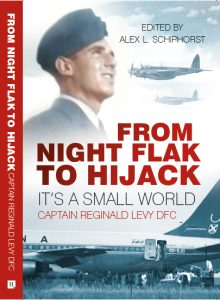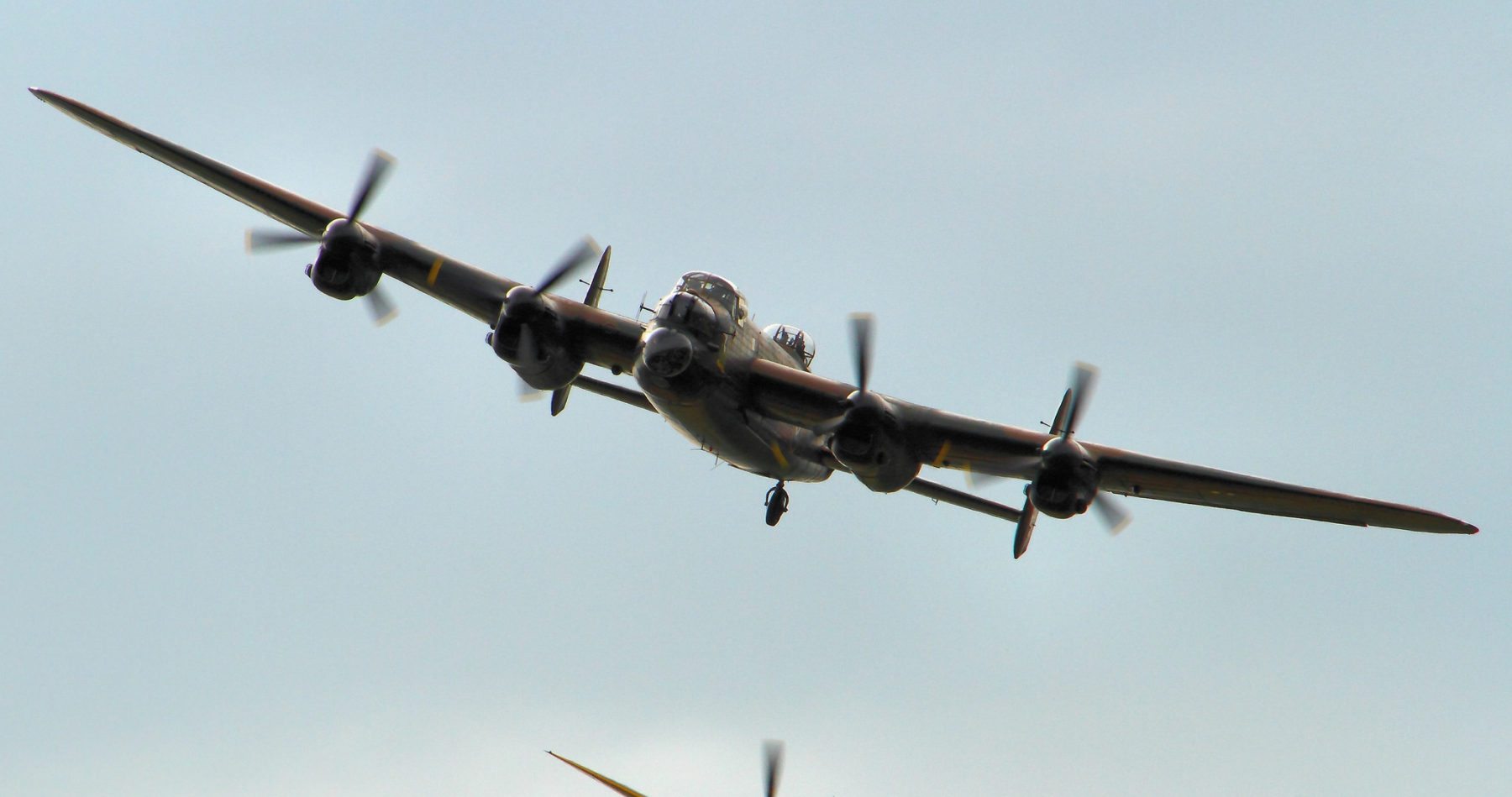Aviation and Autobiography
[dropcap]F[/dropcap]rom Night Flak to Hijack: It’s a Small World is the autobiography of Reginald Levy, a British pilot who reached a total of 25,090 flying hours in over forty years of aviation. He is also my grandfather.
He led, as he himself expressed, an exciting and glamorous life, but also one of great stress and hardships. His job as a pilot, especially before technology improved dramatically in the last couple of decades, was invariably dangerous, whether due to technical malfunctions, weather conditions or human error. Nevertheless, two major events stand out from his tale: his role as a Bomber Command pilot during World War Two, and the hijacking of his plane in 1972 by Black September terrorists, better known for their role in the Munich Massacre of the same year.
My grandfather passed away in 2010 and left behind his unfinished manuscript
I began to work on it in 2013 and did not initially realise the amount of work such a project would entail. I came to understand there was so much that my grandfather had done or taken part in that I knew nothing about, so it was a very insightful and moving experience for me. His military training in the US, his partaking in the bombings of Hamburg and Berlin, his role in the Berlin Airlift and his witnessing of the ‘Rumble in the Jungle’ are recounted with such detail and excitement that I felt myself coming to know him better as a person. The task of writing the epilogue was not without its difficulties, and it was challenging to articulate the memories I had of him, whilst also keeping in mind the importance of how other people thought of and remembered him.
 Working on the book, I became conscious of how much the world he described has changed from the one we live in now. At the same age as I was writing the book, my grandfather was training to become a Bomber Command pilot and would soon be flying sorties over Nazi Germany.
Working on the book, I became conscious of how much the world he described has changed from the one we live in now. At the same age as I was writing the book, my grandfather was training to become a Bomber Command pilot and would soon be flying sorties over Nazi Germany.
Nevertheless, some echoes of what he lived through continue to be relevant to this day, notably the hijacking of his Sabena plane in 1972. The hijacking by Black September terrorists dragged him quite literally into the Israeli-Palestinian conflict. In his memoirs, he stresses the point that he “had absolutely no political sympathies with either side and only strove to do all (he) could to get (his) passengers and crew out of the aeroplane.” His anger at the hijackers was not directed towards their demands or their goal in achieving this, but at the fact that his command of the aircraft had been threatened and that his passengers were being put in danger. With “no wish to be embroiled in the bitter battle that was going on between the state of Israel and the Arabs,” Reginald stood precariously on the front line of a conflict which had started several decades beforehand and which continues today to divide opinions, states and people. Nevertheless, he stood his ground and refused to be pulled into this rapid sink-hole of political entanglements and chaos, something from which I believe there is a lesson to be learnt.
Today his autobiography allows us to approach such complex circumstances from a different vantage point and better understand the way the world is today. I feel very proud of him, and of having the memoirs published, and I hope it will prove an interesting and captivating read for those with a passion for history, aviation and war but also those who wish to simply grasp a fragment of the past.
Image Credits: Header (Flickr/Airwolfhound), Image 1 (Alex Schiphorst).

Comments